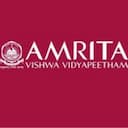The University of Calicut was set up by the Government of Kerala under the Kerala University Act of 1968. Its establishment aimed to cater to the higher educational needs of the northern part of the state, covering districts like Kozhikode, Malappuram, Wayanad, and Kannur. The university’s formation also addressed the growing demand for advanced academic programs, offering a more diverse and accessible option for students. The University of Calicut offers admissions to Undergraduate, Postgraduate and Doctoral Programs across various disciplines and branches.
Since its establishment in 1968, it has significantly contributed to the academic and intellectual growth of the region. With a rich legacy of educational excellence and a commitment to research and development, the university continues to play a pivotal role in shaping the minds of students from diverse backgrounds. Calicut University is also known for its innovative approaches in professional education, offering programs like MBA, MCA, LLB, and specialized diplomas that integrate practical experience with theoretical learning.
University of Calicut Overview
|
Particulars
|
Details
|
|
Year of Establishment
|
1968
|
|
NIRF Ranking 2024
|
89th in University Category
|
|
Courses Offered
|
B.A., B.Com, B.Sc, BBA, LLB, M.A, M.Com, M.Sc., LLM, MBA, PhD
|
|
Admission Criteria
|
Bachelors Degree: 10+2 with minimum percentage of marks required
Masters Degree: Bachelors Degree in related field with minimum marks required
PhD: As specified by the respective centre/department
|
|
Placements
|
BharatNXT, Flipkart, Attica, TCS
|
University of Calicut Ranking and Accreditation
Calicut University is recognized by the University Grants Commission (UGC) and has earned the prestigious "A" grade from the National Assessment and Accreditation Council (NAAC). These accolades highlight the university's commitment to maintaining academic standards and ensuring the quality of education provided to its students.
The university’s reputation extends globally, with many international partnerships fostering student exchange, research collaborations, and cultural interactions. Its diverse academic offerings and research facilities continue to attract students from across the country and beyond. The details regarding the ranking and accreditation of the University of Calicut are provided below:
|
Particulars
|
Details
|
|
NIRF University Ranking
|
89th
|
|
NIRF Ranking (State University)
|
43rd
|
|
NAAC Accreditation
|
Till 2027
|
|
NAAC CGPA
|
3.35
|
|
NAAC Grade
|
A+
|
University of Calicut Admissions 2025
Over the years, the University of Calicut has expanded its offerings to include a wide range of undergraduate, postgraduate, and doctoral programs across various disciplines. With multiple faculties such as Science, Humanities, Social Sciences, Commerce, Education, and Law, the university has something for every student. The courses offered by the University of Calicut are mentioned below:
|
Courses
|
Specialization
|
Eligibility Criteria
|
|
B.A.
|
English Language and Literature, Malayalam Language and Literature, Arabic Language and Literature, Hindi Language and Literature, Tamil Language and Literature, Urdu Language and Literature, History, Economics, Economics with Foreign Trade, Development Economics, Political Science, Public Administration, West Asian Studies, Sociology, Philosophy, Islamic History, Islamic Studies, Econometrics and Data Management, MultiMedia, Graphic Design and Animation, Visual Communication, Film and Television, Journalism and Mass Communication, Advertising and Sales Management, Music, Veena, Violin, Mridangam
|
Class 10+2 with minimum percentage of marks required
Passed 10+2 in a relevant stream
|
|
BTTM
|
Bachelor of Travel and Tourism Management
|
Class 10+2 with minimum percentage of marks required
Passed 10+2 in a relevant stream
|
|
BSW
|
Bachelor of Social Work
|
Class 10+2 with minimum percentage of marks required
Passed 10+2 in a relevant stream
|
|
BFA
|
Bachelor of Fine Arts, Bachelor of Fine Arts in Art History and Visual Studies
|
Class 10+2 with minimum percentage of marks required
Passed 10+2 in a relevant stream
|
|
B.Sc
|
Chemistry, Zoology, Botany, Biology, Physics, Applied Physics, Mathematics, Statistics, Psychology, Computer Science, Microbiology, Polymer Chemistry, Aquaculture, Geology, Food Technology, Industrial Chemistry, Biochemistry, Hotel Management & Culinary Arts, Hotel Management & Catering Science, Instrumentation, Plant Science, Home Science (Textiles & Fashion Technology), Family & Community Science, Genetics, Geography, Printing Technology, Costume and Fashion Designing, Environment & Water Management, Biotechnology, Forensic Science, Electronics, Information Technology, Mathematics and Economics, Mathematics and Physics,
|
Class 10+2 with minimum percentage of marks required
Passed 10+2 in a relevant stream
|
|
BCA
|
Bachelor of Computer Application
|
Class 10+2 with minimum percentage of marks required
Passed 10+2 in a relevant stream
|
|
B.Com
|
Bachelor of Commerce with Taxation, Bachelor of Commerce (B.Com), B.Com (Honours),
|
Class 10+2 with minimum percentage of marks required
Passed 10+2 in a relevant stream
|
|
BBA
|
Bachelors of Business Administration
|
Class 10+2 with minimum percentage of marks required
Passed 10+2 in a relevant stream
|
|
B.Ed.
|
Bachelor of Education, Bachelor of Physical Education
|
Class 10+2 with minimum percentage of marks required
Passed 10+2 in a relevant stream
|
|
B.Tech.
|
Electrical and Electronics Engineering, Electronics and Communication Engineering, Information Technology, Mechanical Engineering, Printing Technology
|
Class 10+2 with minimum percentage of marks required
Passed 10+2 in a relevant stream
|
|
B. Arch
|
Bachelor of Architecture
|
Class 10+2 with minimum percentage of marks required
Passed 10+2 in a relevant stream
|
|
LLB
|
B.A. LLB, LLB, B.Com LLB
|
Class 10+2 with minimum percentage of marks required
Passed 10+2 in a relevant stream
|
|
MA
|
Development Economics, Integrated M.A Politics and International Relations, Integrated M.A Sociology, Econometrics, Business Economics, English Language and Literature, Arabic Language and Literature, Malayalam Language and Literature, Hindi Language and Literature, Functional Hindi and Translation, Sanskrit Language and Literature, Comparative Literature, Urdu, History, Economics, Financial Economics, Political Science, Philosophy, Sociology, Womens Studies, Folklore, Master of Library Science, Integrated MA in Development Studies, Journalism and Mass Communication, Music, Master of Theatre Arts (MTA),
|
Bachelor’s degree in relevant field with minimum percentage of marks required
|
|
M.Sc
|
Biochemistry, Environmental Science, Applied Plant Science, Applied Zoology, Physics, Mathematics, Statistics, Applied Psychology, Human Physiology, Radiation Physics, Applied Chemistry, Forensic Science, Applied Geology, Printing and Packing Technology, Computer Science, Biotechnology, Microbiology, Home Science (Textile and Costume Science), Home Science (Nutrition and Dietetics), General BioTechnology, Electronics, Mathematics with Data Science, Integrated MSc Geology, Integrated MSc Biology, Integrated MSc Botany with Computational Biology, Integrated MSc Psychology
|
Bachelor’s degree in relevant field with minimum percentage of marks required
|
|
M.Com
|
Master of Commerce (International Finance)
|
Bachelor’s degree in relevant field with minimum percentage of marks required
|
|
MBA
|
International Finance, Healthcare Administration
|
Bachelor’s degree in relevant field with minimum percentage of marks required
|
|
M.Tech
|
Nano Science and Technology
|
Bachelor’s degree in relevant field with minimum percentage of marks required
|
|
M.Arch
|
Master of Architecture in Sustainable Architecture, Master of Architecture in Advanced Architecture, Master of Architecture in Landscape
|
Bachelor’s degree in relevant field with minimum percentage of marks required
|
|
M.Ed.
|
Master of Education, Master of Physical Education, Master of Physical Education and Sports (MPES)
|
Bachelor’s degree in relevant field with minimum percentage of marks required
|
|
Master of Laws
|
LLM
|
Bachelor’s degree in relevant field (LLB) with minimum percentage of marks required
|
University of Calicut Fees
The University of Calicut offers a wide range of programs at undergraduate, postgraduate, and doctoral levels, and the fee structure varies depending on the course, level of study, and the student's category (such as general, SC/ST, or economically disadvantaged).
For undergraduate programs, the fee structure is determined by the respective colleges affiliated with the University of Calicut. In addition to regular fees, the university may also charge for facilities such as hostel accommodation, library access, and laboratory usage. Students belonging to economically weaker sections or reserved categories may be eligible for fee concessions or scholarships based on government schemes.
The university has also introduced online fee payment systems for convenience, allowing students to pay their dues easily through its official portal. It is advisable for prospective students to check the University of Calicut's official website or visit the admissions office for detailed and updated fee structures, as they may change annually or vary by course.
University of Calicut Placements
The placement statistics of the University of Calicut are provided in the table below:
|
Year
|
Seat Intake
|
Students Placed
|
Median Salary of placed Graduates
|
|
2023
|
989
|
266
|
INR 3.69 LPA
|
|
2022
|
968
|
140
|
INR 3.55 LPA
|
|
2021
|
881
|
62
|
INR 4 LPA
|
University of Calicut Infrastructure and facilities
The university’s sprawling campus, located in Thenjipalam, Malappuram district, is a blend of natural beauty and state-of-the-art facilities. Surrounded by lush greenery, the campus provides a tranquil environment conducive to learning and research.
The university is well-equipped with:
- Modern classrooms featuring the latest teaching aids.
- Library with an extensive collection of books, journals, and digital resources to support research and academic growth.
- Research Centers focusing on areas like science and technology, social sciences, and environmental studies.
- Hostels that cater to students coming from different parts of the state and beyond.
- Sports Complexes to promote physical fitness and extracurricular activities.
- Cafeterias and recreational facilities that make the campus experience lively and engaging.





















